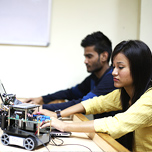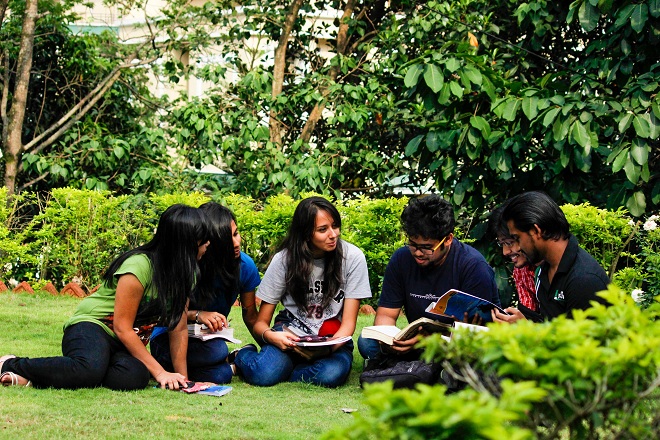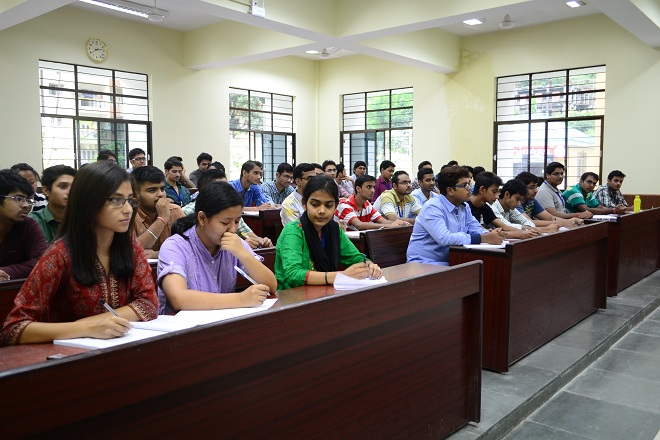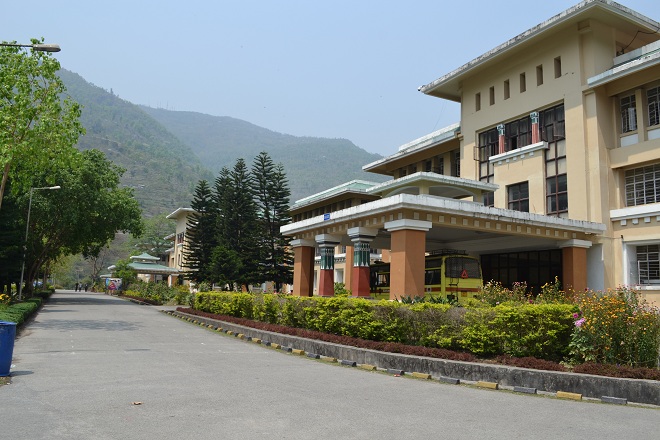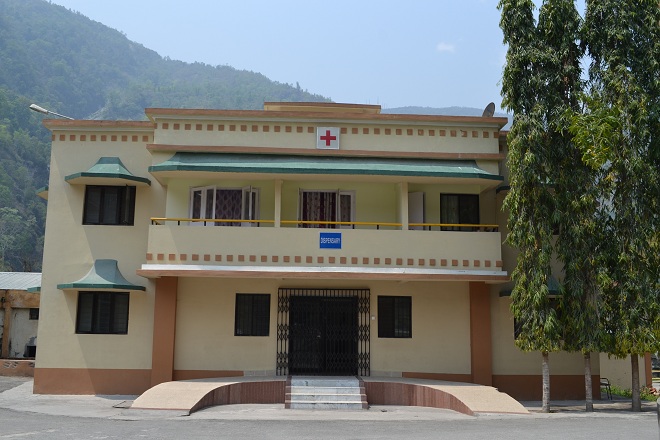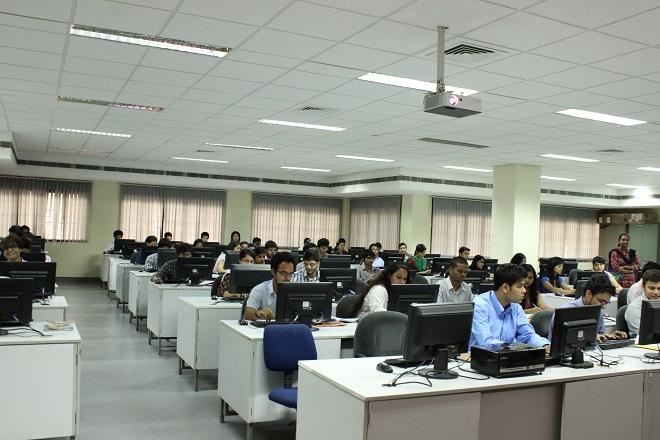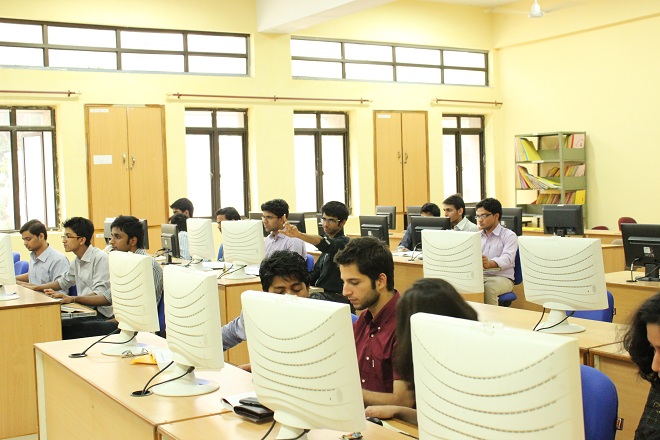PROGRAM OUTCOMES (PO)
- Engineering knowledge: Apply the knowledge of mathematics, science, engineering fundamentals, and an engineering specialization to the solution of complex engineering problems.
- Problem analysis: Identify, formulate, review research literature, and analyze complex engineering problems reaching substantiated conclusions using first principles of mathematics, natural sciences, and engineering sciences.
- Design/development of solutions: Design solutions for complex engineering problems and design system components or processes that meet the specified needs with appropriate consideration for the public health and safety, and the cultural, societal, and environmental considerations.
- Conduct investigations of complex problems: Use research-based knowledge and research methods including design of experiments, analysis and interpretation of data, and synthesis of the information to provide valid conclusions.
- Modern tool usage: Create, select, and apply appropriate techniques, resources, and modern engineering and IT tools including prediction and modeling to complex engineering activities with an understanding of the limitations.
- The engineer and society: Apply reasoning informed by the contextual knowledge to assess societal, health, safety, legal and cultural issues and the consequent responsibilities relevant to the professional engineering practice.
- Environment and sustainability: Understand the impact of the professional engineering solutions in societal and environmental contexts, and demonstrate the knowledge of, and need for sustainable development.
- Ethics: Apply ethical principles and commit to professional ethics and responsibilities and norms of the engineering practice.
- Individual and team work: Function effectively as an individual, and as a member or leader in diverse teams, and in multidisciplinary settings.
- Communication: Communicate effectively on complex engineering activities with the engineering community and with society at large, such as, being able to comprehend and write effective reports and design documentation, make effective presentations, and give and receive clear instructions.
- Project management and finance: Demonstrate knowledge and understanding of the engineering and management principles and apply these to one’s own work, as a member and leader in a team, to manage projects and in multidisciplinary environments.
- Life-long learning: Recognize the need for, and have the preparation and ability to engage in independent and life-long learning in the broadest context of technological change.
SYLLABUS AND COURSE OUTCOMES
Click here for CSE(Data Science) syllabus.
Click here for Course Outcomes
CAREER OPPORTUNITY
- Mandatory Internships in reputed MNCs, Major Projects in renowned NITs, IITs and Industrial training in prominent IT sector companies gives the students an exposure to the technology in practice and industrial environment.
- Seminars included in the curriculum helps them to experience self-learning and develop communication and interpersonal skills.
- Research activity in the department encourages for innovations and lifelong learning.
- Workshops & conferences held at the department and institution level provides the students with the relevant exposure.
- There are opportunities for students in technical activities through technical clubs such as IEEE student branch.
- AI & DS Department has tremendous potential to cater for the needs of experts in Data Analytics & Artificial Intelligence across diversified Industry Segments viz: IT / Ecommerce / Communication / Retail / Medicine / Banking & Finance / Media / Entertainment / Transportation / Construction / Governance / Automobile / Manufacturing and many more.
- Students are expected to utilize their technical knowledge and skills in core AI & Data Science using cutting edge technology in their business domains relevant to the
Industry / Organization.
ELIGIBILITY
- B.Tech. - Passed 10+2/equivalent with 45% marks (40% in Reserved Category) in Physics & Maths (Mandatory) and any one from the following: Computer Science / Electronics / Information Technology / Biology / Chemistry / Informatics Practices / Biotechnology / Technical Vocational subject / Engineering Graphics / Business Studies / Entrepreneurship..
Entrance Examination
a) General Category, Defence, North East, Gorkha Territorial Administration (GTA) and Paramilitary Force Categories:
- The candidates will have to appear for the JEE to be conducted by the CBSE.
- Cut-off JEE Main Score in All India JEE applicable to all reserved categories will be displayed on our website www.smu.edu.in.
b) Sikkim Category:
- Candidates should apply to the Director, Technical Education, HRDD and Government of Sikkim. They should appear in the entrance test conducted by the Government, the details of which will be notified by the Director, HRDD, Technical Education.
c) MET Category:
- Manipal Entrance Test (MET) conducted by MAHE (Manipal Academy of Higher Education)
d) SMIT Online Test:
- Candidates seeking admission under this category will have to appear for online test conducted by SMU.














